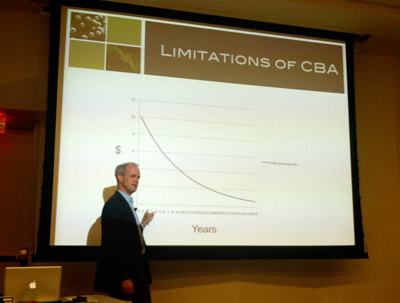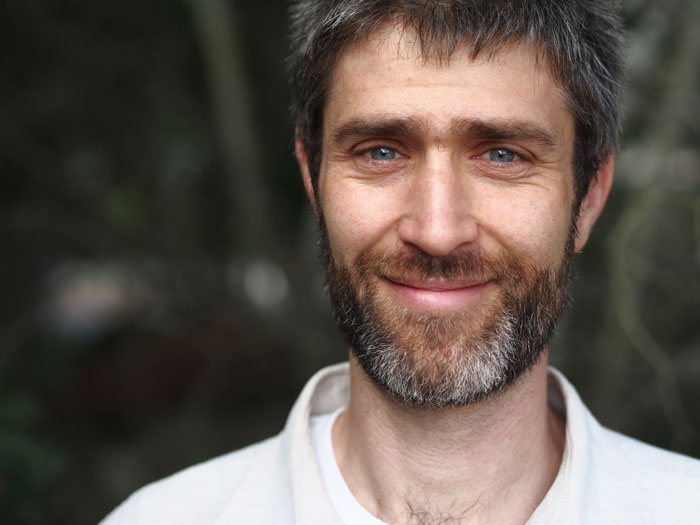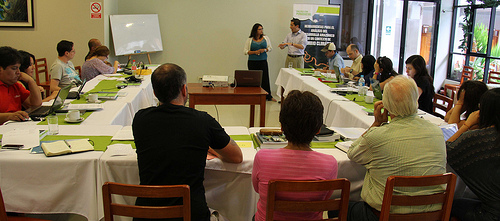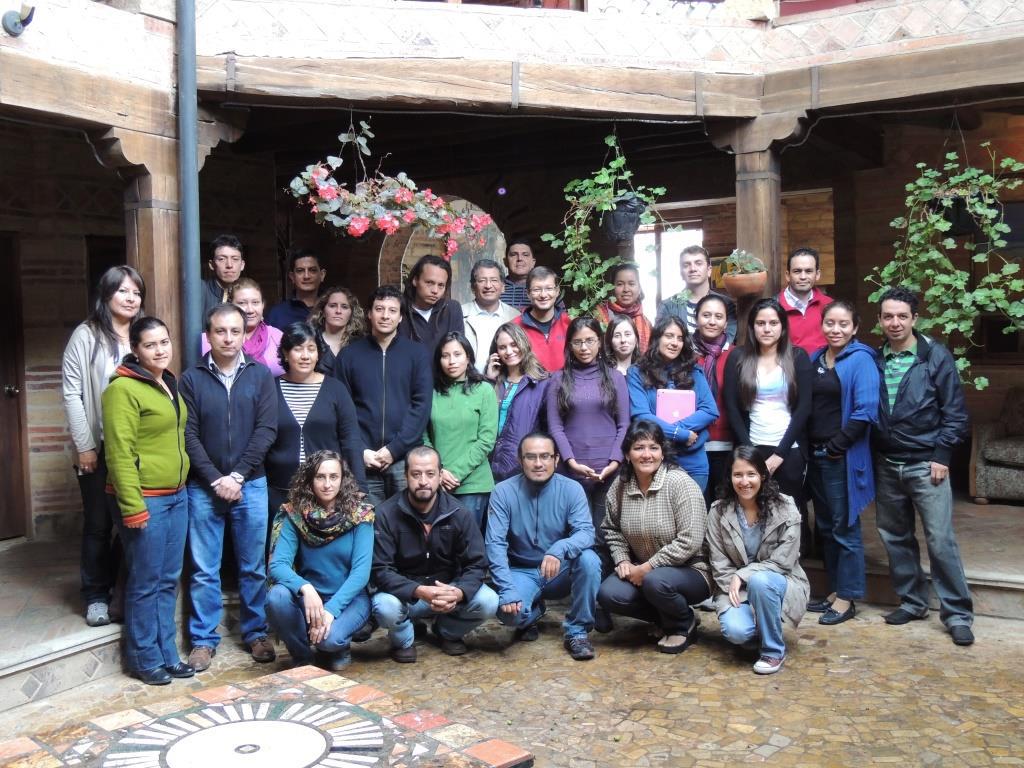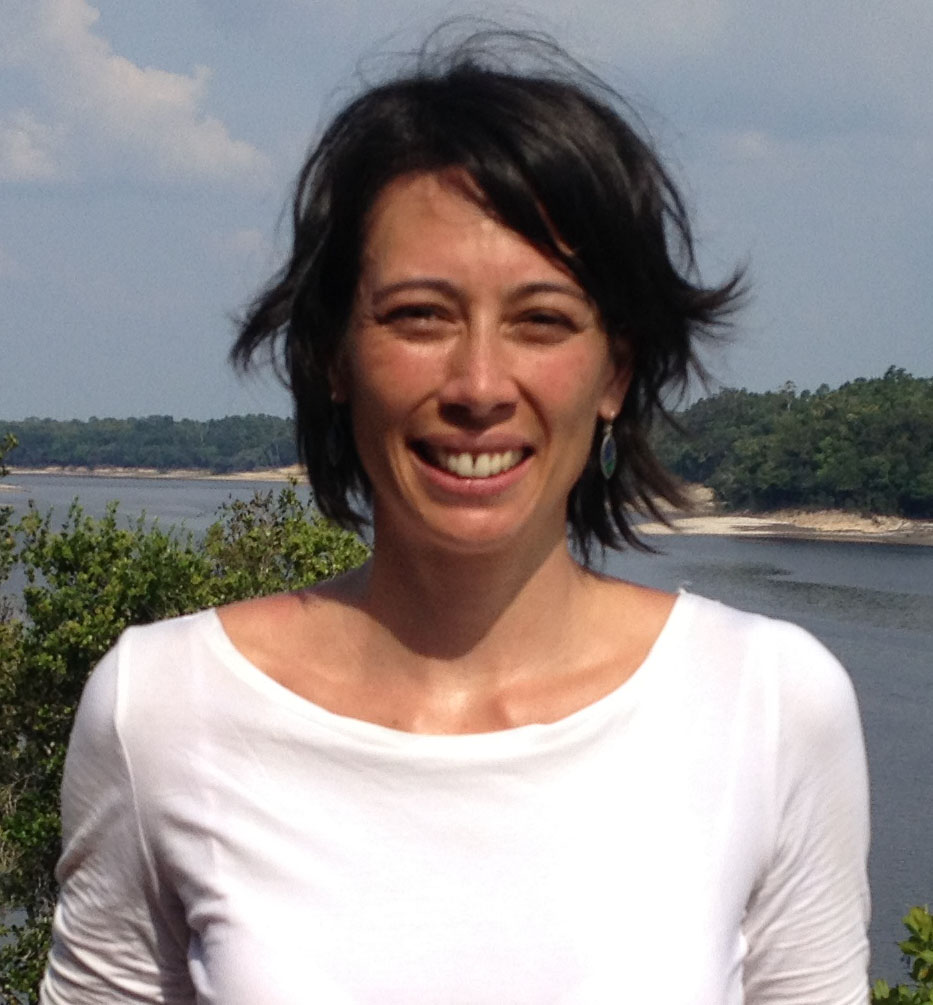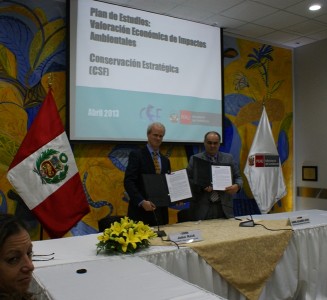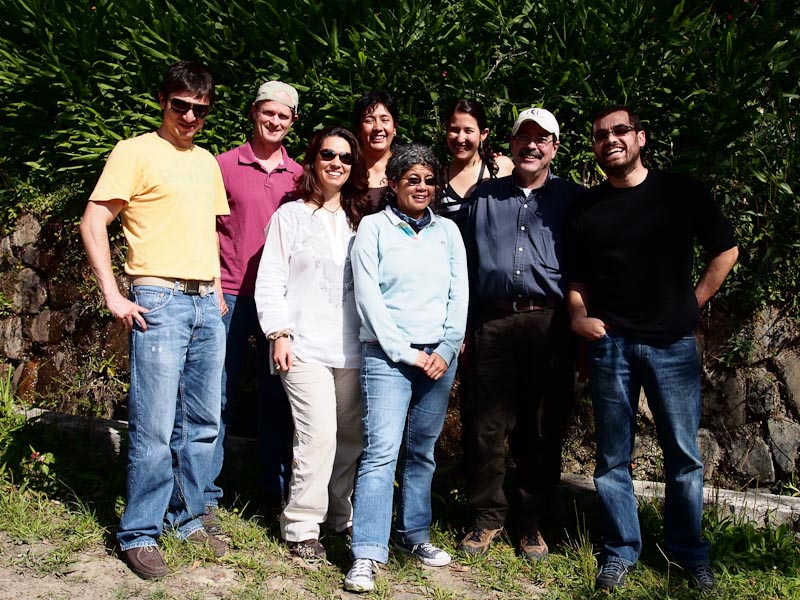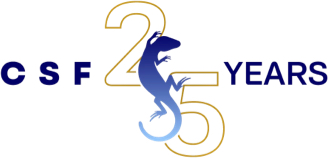News
Last month, we had the opportunity to bring CSF’s economic analysis training to a new audience – the Inter-American Development Bank (IDB) in Washington D.C. The IDB approves over $11 billion dollars in loans each year, and is a major force in shaping the face of development in Latin America. We delivered two training workshops for transport and water sector specialists from various country offices, and a shorter session for IDB Economists based in D.C.
Since he was a young child, Aaron Bruner has been interested in forest conservation. For much of his youth, he had intended to be a conservation biologist, but while at Wesleyan University, he had an economics professor who "blew his mind", and he realized that the best route to accomplish conservation was through the power of economics. It was then that he chose to study economics as an undergraduate in order to be able to speak the language of policy-makers and developers to achieve the greatest impact.
The Gordon and Betty Moore Foundation awarded a grant of $256,000 this month to support CSF's Conservation Economics Initiative. The CEI is a CSF-Duke University effort to spread the effective use of conservation economics to benefit natural ecosystems. Moore's support, along with funds from the John D. and Catherine T. MacArthur Foundation, will be used to set up local hubs where CSF-style conservation economics courses can be delivered by our own course graduates. The CEI will also take CSF's deep in-person training know-how and transform it into online teaching resources to make sure that more conservationists learn the economic essentials and that our students have knowledge at their fingertips when they need it.
Journalists and environmental experts from Bolivia, Peru, Ecuador, Colombia, and Brazil recently participated in the Amazon Dialogue for Journalists in Puerto Maldonado, Peru. The goal of the meeting was to provide analysis tools to participating journalists on the value of biodiversity and ecosystems management. Journalists were exposed to information on issues surrounding large infrastructure projects, economic tools and incentives for conservation, and food, water and energy security in the Amazon. They were connected to experts in the field and were able to exchange ideas on how effective communication can lead to better decision-making.
In May, I had the opportunity attend CSF’s Economic Tools for Conservation training course in Colombia. This course specifically focused on Payments for Ecosystem Services (PES) as a tool for conservation.
CSF welcomes Susan Edda Seehusen, our new Executive Director of CSF-Brasil. Since May 2013 she has been working in CSF-Brasil's new office in Rio de Janeiro. She brings to the team five years of experience with German development cooperation organizations (GFA Consulting Group, GIZ and KfW), where her work focused on natural resource management in tropical forest regions, economic instruments for environmental protection, payment for ecosystems services and the economics of ecosystems and biodiversity.
On April 29, CSF signed a convenio marco - an umbrella collaboration agreement - with Peru's Ministry of Environment (MINAM). For more information about this exciting partnership, click below:
http://www.minam.gob.pe/index.php?option=com_content&view=article&id=24…
Two new exciting opportunities could give you the chance to be a part of the equation saving millions of acres worldwide.
Richshaw Bagworks Founder and CEO, Mark Dwight, has always cared for the environment. The company prides itself on minimizing waste in its local San Francisco facility, and Mark's personal passion for cycling inspires many of its products. Everything from custom messenger bags to iPad covers to baby changing kits are guaranteed to be locally produced, eco-friendly, and durable, not to mention stylish! Rickshaw has donated hundreds of its iconic custom “Zero Messenger Bags” (inspired by the power of “zero” waste) to CSF global trainees since 2010. The company has also hosted CSF supporters for fundraising auctions and factory tours.
Conservation Strategy Fund and Duke University have launched a collaborative partnership to create a Conservation Economics Initiative. The Initiative will make economics training more readily available to conservation professionals around the world by combining the academic capabilities of a university leader in the environmental field with CSF’s agility and experience in delivering training to conservation practitioners.
The initiative will improve the quality and quantity of training currently available, develop new course content, and connect Duke faculty and students with environmental practitioners in developing countries.
The Conservation Economics Initiative will
• Develop cutting edge curriculum for conservation economics.

